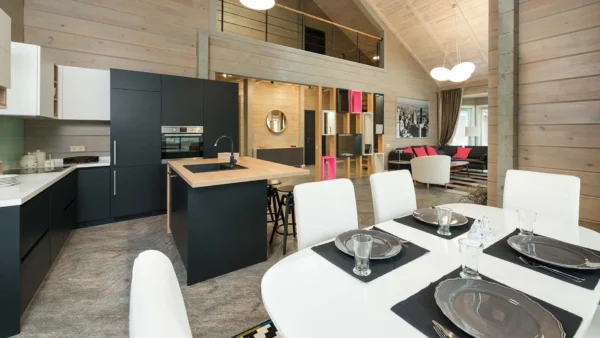How well do you know your home for an insurance quote?
Your home insurance premium is based on the particulars of your home, including when it was built, what it’s made of and how big it is. If you don’t know these important details about your home, you might find that the quotes you get from a broker are quite different from what you end up paying in premiums.
When you call for home insurance quotes, your broker will ask you a series of questions about your insurance history and about the home itself. They will enter that information into a system that will generate quotes from different insurers, and usually you’ll make a decision based on these quotes. But after you think your policy is finalized, an underwriter at the insurance company will verify the answers that you gave your broker against documents you provide and public records, and if it turns out the answers you gave weren’t accurate, they could either change your premium after the fact, or even make a determination that you don’t meet the company’s underwriting criteria, and terminate the policy.
So how well do you know your home? Small discrepancies in your answers, like being off by a year or two on when the home was built, might not make a big difference, while other mistakes like not knowing what kind of wiring the home has could cause you much larger problems, giving you significantly inaccurate quotes, or worse, nullifying your coverage before it even starts.
Here is a rough breakdown of some of the questions related to home insurance that may be hard to answer, but that you definitely want to get right if you want an accurate quote.
1. When was the home built?
As stated above, if you’re off by a year or two, this may not be a problem, but larger discrepancies, especially for older homes, could lead to inaccurate quotes, or could even make your home ineligible for coverage with some companies. Before you call for a quote, check the deed or ownership papers, which will clearly show the year the home was built.
2. What is the replacement value of the home?
Your broker may ask you the replacement value of your home, which is not the price that you paid for it (the purchase price). The purchase price includes the value of the land that the home is built on, and doesn’t necessarily reflect the current cost of materials and labour that would be needed to rebuild your home if it burned down today.
The replacement value of the home will determine what the dollar limits are on the home insurance policy, so you may want to err on the high side, to make sure that you are fully covered if something happens. Miscalculating by more than a little here could change your quote, but more importantly, it could leave you with not enough coverage. Replacement value can be estimated based on the square footage of the home and what it is made of (Wood frame? Brick exterior? Wood roof shingles?) Your broker should be able to help you with this calculation.
3. What is the square footage of the home?
Most insurance companies want to know the square footage of your home, not including the garage or the basement. This is seldom an exact answer, and you won’t have any problems if you’re within 100 square feet of the actual size. If you don’t know the square footage and don’t have the original listing from when you bought the home, you may need to measure it yourself. Include closets and any storage space.
4. Type of heating/wiring/plumbing and latest upgrade
Your broker will ask what kind of plumbing, wiring and heating you have. If you have a gas or oil furnace, they will ask when it was last replaced. Mistakes in these answers could definitely change your premium or even disqualify your home from coverage with some insurers. A visual inspection will usually tell you everything you need to know. Most homes built since 1980 have copper wiring. If you have an older home with aluminum wiring, that could put the home at much higher risk for fire. The wire casing will be marked “aluminum” or “alum”. Your furnace should be clearly marked with the year it was installed.
5. When was the roof last reshingled?
This is a very important consideration, as it dramatically impacts your risk of suffering water damage if the roof leaks. Most roofs are designed to last between 15 and 30 years, and your risk increases as you approach the maximum lifespan of your particular type of roof. If a significant discrepancy isn’t caught by the insurance company right away and you suffer a water loss years later, your claim could be denied if it turns out that the roof is much older than what you claimed.
Even if your claim isn’t denied outright, most companies will limit your water damage coverage if your roof is more than 25 years old. If the roof hasn’t been replaced since you moved in, the home listing from when you bought the home should tell you when the roof was last replaced. Some insurance companies could actually non-renew your policy if their records show that your roof is now 25 years old or more. So when you replace the roof, make sure to let your broker know ASAP.
The right insurance broker will walk you through all of the above questions and more, and might be able to help you find the answers to some of the questions. To save time, try to have most of the answers figured out before you call. Of course, as your broker, we are on your side, and we’ll help you make sure that your coverage isn’t compromised. Call today!
Special thanks to our own Scott Logan for his contributions to this post.
Looking for home insurance?
Speak with a Mitch Insurance broker today to get a quote on Ontario home insurance. Learn more >
Call now
1-800-731-2228











The first thing is to take out good home insurance that fits your needs and lifestyle so that, in case of emergencies, you do not suffer financially.
Hi Seguros,
Certainly. Finding a great insurance policy that suits your needs while still being affordable can be tricky, but it’s key to preventing financial hardship for many homeowners. A broker can be a great resource in this case.